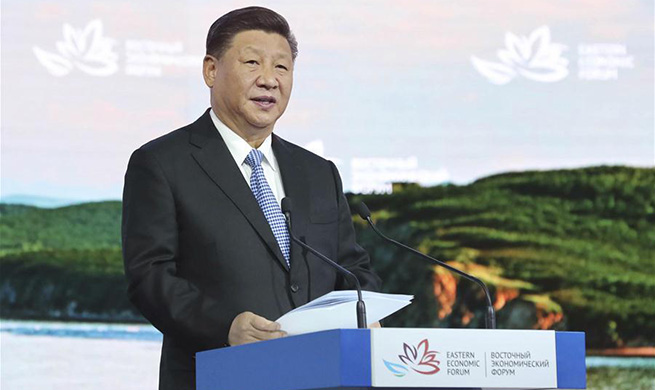by Eric J. Lyman
ROME, Sept. 13 (Xinhua) -- Through a series of mid-sized measures, the 100-day-old Italian government is starting to make major changes to the country's labor market, analysts told Xinhua.
Italy's labor market has historically been among the least flexible in the European Union, with relatively generous benefits and strict rules limiting a company's power to fire most workers.
In recent years, however, economists have argued that a lack of flexibility in labor markets made Italian companies less nimble, acting as a drag on economic growth.
Under the previous two governments -- led by Prime Ministers Matteo Renzi and Paolo Gentiloni, respectively, between 2014 and 2018 -- Italy worked to make labor markets more flexible. But the government of Giuseppe Conte, in power since June 1, has begun the process of reversing some of the new policies.
On the new government's agenda: weakening some of Article 18 of the labor code, which created incentives for companies to take on new workers in part by making it easier to fire them when needed; the so-called "dignity decree" that restricts the use of temporary workers' contracts and increases penalties for companies that unfairly dismiss workers; changes to the public pension system; and plans to establish a basic minimum income not connected to work for all Italians.
In the latest move, Luigi Di Maio, head of the anti-establishment Five-Star Movement, said the government would pass a law that will prohibit stores in large commercial centers from opening on Sundays. The 2019 government budget, due to be released next month, could include additional measures, analysts said.
"I agree that Italy's labor markets need reform, and I even agree with some of the steps the new government is taking," Tania Scacchetti, national secretary for the CGIL trade union, told Xinhua. "But these steps seem to be haphazard, made for political reasons and not as part of a comprehensive reform plan."
For example, Scacchetti said CGIL has been in favor of reducing store hours on Sundays as a way to give workers time off, to boost smaller stores that do not operate in commercial centers, and to increase consumer demand for products during the rest of the week.
"But a change like that cannot be effective on its own," she said. "It has to be in a context of stronger economic growth, tax reform, and it should be phased in."
Patrizia Tullini, a professor specializing in labor law at the University of Bologna, said it is essential these kinds of reforms strike a balance.
"The secret is equilibrium between the needs of workers, of commercial leaders, and of consumers," Tullini said in an interview. "But it's not wise to put pressure on job markets when unemployment is already too high, or on production when economic growth remains slow."
Tullini concluded: "The way debate takes place in Italy favors extreme solutions one way or the other when what is needed is a long-term strategy and an understanding of the way markets work. I can't help think that what is being done now includes too little thought about the impacts months or years later."













